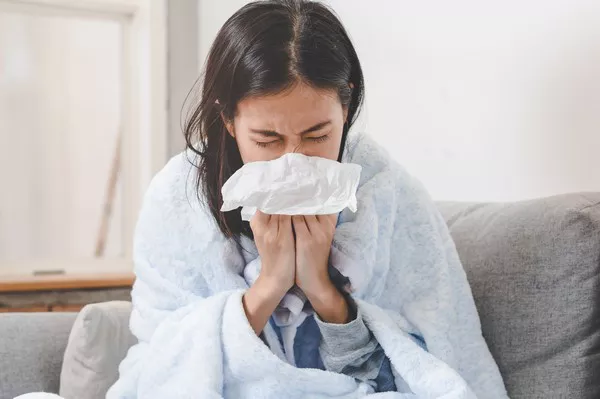An itchy throat caused by allergies can be an uncomfortable and bothersome experience. Whether triggered by pollen, pet dander, dust, or other allergens, this irritation can affect your daily life. Thankfully, there are several effective strategies you can employ to alleviate the discomfort and find relief. In this article, we’ll explore the causes of itchy throat allergies, offer practical tips to manage the symptoms, and provide insights into long-term allergy management.
Understanding Itchy Throat Allergies
1. Common Triggers
Itchy throat allergies are often triggered by environmental allergens, including pollen, mold spores, pet dander, dust mites, and certain foods. Identifying the specific trigger is essential for effective management.
2. Mechanism of Irritation
When your immune system identifies an allergen as harmful, it releases histamines that lead to various allergic reactions, including itchiness, sneezing, and congestion in the throat.
Practical Tips for Immediate Relief
1. Gargle with Warm Saltwater
Gargling with warm saltwater can help soothe the irritation and provide temporary relief from an itchy throat. Mix a teaspoon of salt in a glass of warm water and gargle for about 30 seconds.
2. Stay Hydrated
Drinking plenty of fluids, such as water and herbal teas, helps keep your throat moist and reduces the itchiness. Avoid caffeine and alcohol, which can contribute to dehydration.
3. Honey and Lemon
A mixture of honey and lemon in warm water is a popular home remedy. Honey has soothing properties, while lemon can help break down mucus and ease discomfort.
4. Lozenges and Throat Sprays
Over-the-counter lozenges and throat sprays containing menthol or other soothing ingredients can provide temporary relief by numbing the throat.
5. Humidify Your Environment
Using a humidifier in your living space adds moisture to the air, preventing your throat from becoming dry and irritated.
Avoiding Allergen Exposure
1. Pollen and Outdoor Allergens
During high pollen seasons, minimize outdoor activities, keep windows closed, and change clothes after being outdoors to avoid bringing allergens indoors.
2. Indoor Allergens
Regularly clean and vacuum your home to reduce dust, pet dander, and mold. Wash bedding and curtains frequently to keep allergen levels low.
Allergy Medications
1. Antihistamines
Over-the-counter antihistamines can help block the effects of histamines, reducing allergy symptoms, including throat itchiness.
2. Decongestants
Decongestants can relieve nasal congestion and postnasal drip, which can contribute to throat irritation.
3. Nasal Corticosteroids
Prescription nasal corticosteroids can effectively reduce inflammation in the nasal passages and throat.
Allergy Testing and Immunotherapy
1. Allergy Testing
Consulting an allergist for comprehensive allergy testing can help identify specific triggers and develop a personalized management plan.
2. Immunotherapy
Immunotherapy, such as allergy shots or sublingual tablets, can desensitize your immune system to allergens over time, reducing the severity of allergic reactions.
Lifestyle Modifications
1. Dietary Changes
Incorporating anti-inflammatory foods rich in antioxidants, such as fruits, vegetables, and omega-3 fatty acids, can support overall immune health.
2. Breathing Exercises
Practicing deep breathing exercises and maintaining good indoor air quality can reduce throat irritation and improve respiratory health.
Consultation with a Healthcare Professional
1. Persistent Symptoms
If your itchy throat allergies persist or worsen despite home remedies and over-the-counter medications, consult a healthcare professional for a proper evaluation and guidance.
2. Long-Term Management
Developing a long-term allergy management plan with the guidance of a medical professional can help you effectively manage and reduce the frequency of itchy throat allergies.
Conclusion
In conclusion, managing itchy throat allergies involves a combination of immediate relief strategies, allergen avoidance, medication, and lifestyle modifications. By understanding the triggers, employing practical tips for relief, and seeking guidance from healthcare professionals, you can effectively address the discomfort caused by throat allergies. Remember that each individual’s allergic response is unique, so finding the most suitable approach for your specific situation is key to achieving lasting relief and improved quality of life.


